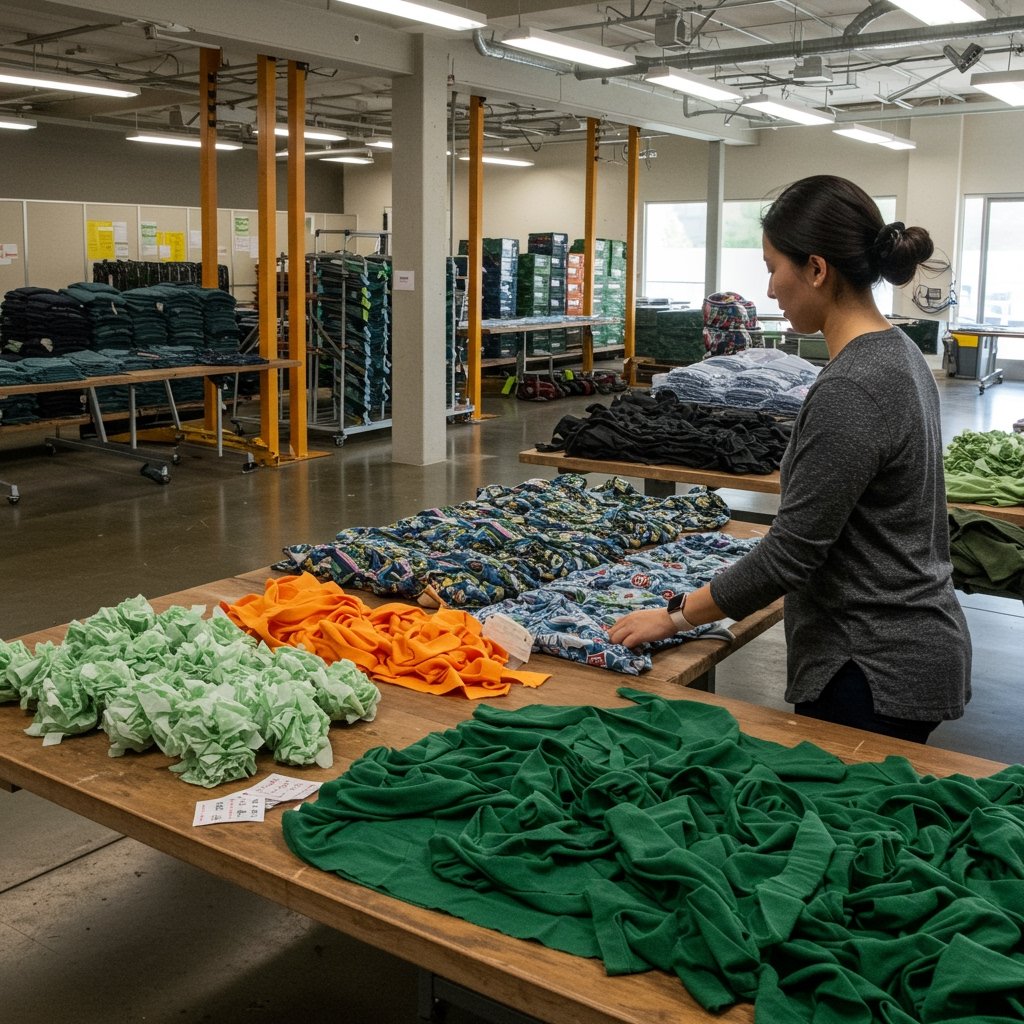Salem, Oregon – The office of Oregon Governor Tina Kotek has announced the launch of a significant new state fund aimed at propelling the growth of the state’s emerging regenerative textile sector and supporting local sustainable fashion brands. The initiative, a $5 million grant program, is designed to provide crucial financial backing to designers and manufacturers based in Oregon who are committed to environmentally responsible practices.
The fund specifically targets businesses focused on sourcing materials from ethical, low-impact agricultural practices conducted within Oregon. Furthermore, it seeks to support the implementation of innovative circular economy models throughout the production process.
Understanding the Investment
The $5 million allocation represents a substantial investment by the state into a sector increasingly recognized for its potential to drive both economic prosperity and environmental stewardship. Structured as a grant program, the funding is intended to remove financial barriers that often hinder small to medium-sized businesses from adopting more sustainable and ethical operational models.
State officials emphasized that the grants would be competitive, likely prioritizing projects demonstrating clear plans for sourcing materials sustainably, implementing closed-loop or circular systems, and contributing to the local economy through job creation and value-added manufacturing within Oregon.
Fostering Regenerative Practices
A cornerstone of this initiative is the emphasis on “regenerative” textiles. This concept extends beyond basic sustainability, focusing on agricultural and land management practices that not only minimize harm but actively work to improve soil health, biodiversity, water quality, and carbon sequestration.
The fund will incentivize Oregon-based designers and manufacturers to build supply chains rooted in the state’s agricultural landscape, supporting local farmers and ranchers who are adopting or expanding regenerative methods. This could involve sourcing fibers like wool, cotton, or flax grown using these restorative techniques, or utilizing natural dyes derived from sustainably harvested local plants.
By connecting textile production directly to regenerative agriculture within Oregon, the state aims to create a vertically integrated, ethical supply chain that reduces transportation emissions and ensures greater transparency regarding material origins and environmental impact.
Embracing the Circular Economy
In addition to sustainable sourcing, the program places a strong focus on the principles of the circular economy. Traditionally, the textile industry follows a linear model: materials are produced, used, and then discarded, often ending up in landfills.
A circular model, conversely, seeks to keep materials in use for as long as possible through design strategies that facilitate durability, repair, reuse, and high-value recycling. For the textile sector, this could involve designing garments for longevity, implementing take-back programs for worn items, developing technologies for fiber-to-fiber recycling, or finding innovative uses for textile waste.
The Oregon fund will support companies that are pioneering these methods, whether through developing new recycling technologies, creating rental or resale platforms, or designing products that can be easily disassembled and recycled at the end of their useful life. This shift is seen as critical for reducing waste and the environmental footprint of the fashion industry.
Empowering Local Industry
The primary beneficiaries of this grant program will be Oregon-based designers and manufacturers. The state’s commitment aims to cultivate a robust local ecosystem for sustainable fashion and textiles, supporting small businesses and entrepreneurs who are often at the forefront of innovation in this space.
Funding could be used for a variety of purposes, including investing in new machinery for sustainable production, covering the higher costs associated with ethically sourced regenerative materials, funding research and development into circular practices, or supporting marketing efforts that educate consumers about the benefits of regenerative and circular textiles.
The program is expected to not only stimulate economic activity within the sector but also foster collaboration between agricultural producers, textile mills, designers, and brands across the state.
Economic and Environmental Impact
This $5 million investment signals Oregon’s intent to become a leader in the sustainable textile movement. By supporting businesses that prioritize environmental health and ethical practices, the state is working to build a more resilient and responsible economy.
The regenerative textile sector, while currently niche, holds significant potential for growth. Global demand for sustainable and ethically produced goods is rising, and this fund positions Oregon-based businesses to capture a portion of that market.
Beyond the economic benefits, the environmental impact is a key driver. Supporting regenerative agriculture helps combat climate change and biodiversity loss, while promoting circularity reduces waste and the need for virgin resources. This initiative aligns with broader state goals for environmental protection and sustainability.
Looking Ahead
The launch of the $5 million grant program marks a significant step in Oregon’s strategy to support its burgeoning regenerative textile and sustainable fashion industry. As the program rolls out and grants are awarded, the focus will turn to the tangible outcomes – the innovative projects supported, the sustainable supply chains established, and the overall growth and environmental benefits realized by this investment in Oregon’s green economy.




